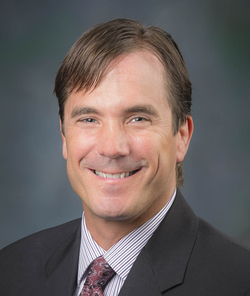Not bigger government, but better services when Community Health and Human Services merge

“The river of opportunity” – a vision for government that will make it easier to get people on a path to self-sufficiency – is a groundbreaking concept. It’s a model new to state government, and one we can utilize for the betterment of Michigan families.
As the current director of the Michigan Department of Community Health (MDCH) and interim director of the Michigan Department of Human Services (DHS), that’s what I get to do every day: help this vision become a reality.
In his State of the State address, Gov. Rick Snyder laid out his plan to reevaluate the way state services are delivered so they support people in a more holistic way. In February, the governor issued an executive order which will take effect in April to merge MDCH and DHS and create the Michigan Department of Health and Human Services. Our goal is to be fully integrated by Oct. 1, and we know there is much to be done.
Since these announcements, we have received a tremendous amount of feedback and insight. The conversations we’ve had throughout this process have included both opportunities for improvements and ideas regarding challenges we’ll face.
I welcome this dialogue. We understand that to best serve those in need, we need to be thoughtful in our approach. It is essential we engage with our employees, partners, legislators, and stakeholders throughout this process. Most recently, we distributed the first of many feedback opportunities to our employees so they too can provide input on our next steps.
As we continue to hear from all these parties, one thing remains clear – having our programs co-exist as they do now without coordination is not good enough.
Today, if an individual or family walks into a local health department or DHS office, the full range of state government services they qualify for may not be made available to them.
Let’s consider an example of this. A family with two children has experienced family abuse, and Child Protective Services places the children in foster care in separate homes. Because of the loss and trauma throughout their lives, the children may experience severe anxiety, depression and school avoidance, as well substance abuse and behavioral issues.
Addressing the needs of this family can easily involve multiple case workers responsible for a myriad of programs. These programs might include Community Mental Health home-based services and psychiatric services within MDCH, juvenile court, as well as the foster care and child protective services within DHS.
Today, each of these programs includes a different treatment or case plan and goals, with no clear coordination of care across the different systems. This is just one example of how as a state, we can do better.
Bringing our departments together will promote improved outcomes by aligning programs, coordinating treatment plans, and creating common goals. We will be able to address health and human services together under one department, and to treat the whole person, not just pieces of a problem.
We’ve seen evidence of the potential this concept holds in several programs where MDCH and DHS have partnered. There are already more than 572,000 residents enrolled in the Healthy Michigan Plan – an initiative by both departments – giving them access to preventive and primary care services, and helping to get them on the path towards a healthier, more successful life.
Through Pathways to Potential, we are helping remove barriers to success for both students and their families. The program continues to expand and increase school attendance, and caseworkers are now in 207 schools in 21 counties. For the 2013-14 school year, chronic absenteeism in Pathways schools decreased 33 percent.
Additionally, we have been working to expand our private and public Employer Resource Networks to improve workforce retention. By placing a DHS worker – a success coach – in companies to assist with employee support, training and advancement, we are directly helping our hard working residents stay on the path to success.
Creating the Michigan Department of Health and Human Services is the first step toward ensuring we support all of our residents on their path to health, wellness, and self-sufficiency. We’ve seen success in our communities where the concept of the River of Opportunity has already improved lives. This is our opportunity to affect positive change for families across our great state, and we are committed to doing just that.
See what new members are saying about why they donated to Bridge Michigan:
- “In order for this information to be accurate and unbiased it must be underwritten by its readers, not by special interests.” - Larry S.
- “Not many other media sources report on the topics Bridge does.” - Susan B.
- “Your journalism is outstanding and rare these days.” - Mark S.
If you want to ensure the future of nonpartisan, nonprofit Michigan journalism, please become a member today. You, too, will be asked why you donated and maybe we'll feature your quote next time!
 Nick Lyon is director of the Michigan Department of Community Health,
and interim director of the Michigan Department of Human Services. (Courtesy photo)
Nick Lyon is director of the Michigan Department of Community Health,
and interim director of the Michigan Department of Human Services. (Courtesy photo)